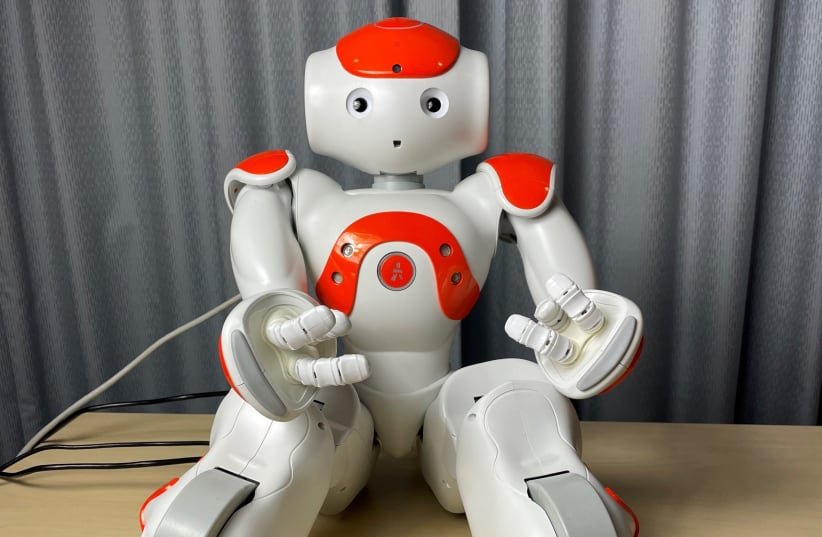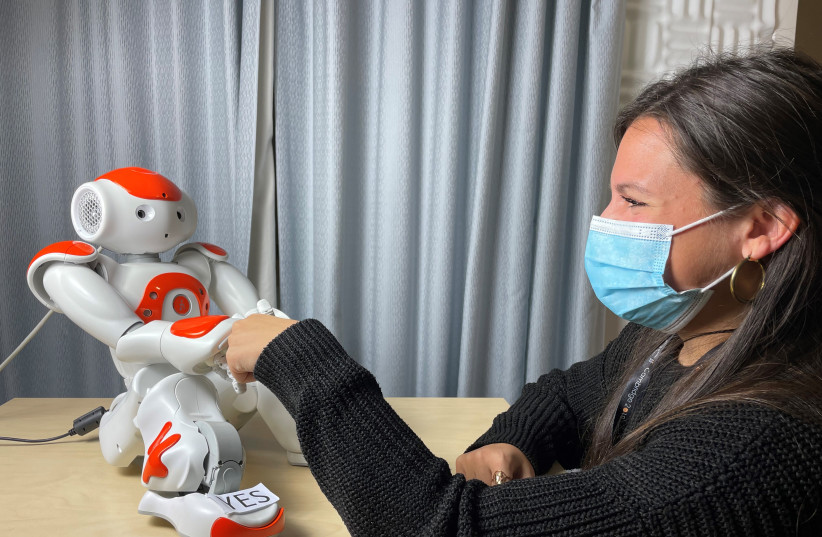A new study shows that robots can detect mental well-being issues in children better than parents or self-reported tests.
A group of people from the University of Cambridge conducted a team of roboticists, computer scientists and psychiatrists to work on a study, with 28 children between 8 and 13 years old.
The research study was peer-reviewed in part by the Engineering and Physical Sciences Research Council (EPSRC), the UK Research and Innovation (UKRI) and the NIHR Cambridge Biomedical Research Center.
They had a child-sized robot that administered a standard psychological questionnaire to assess the mental status of each of the kids.
The children felt more willing to confide in a robot over people and in some cases, some children shared information with the robot that has not been shared with anyone else.
The robots are not intended to become substitutes but researchers say that the robots could be useful in addition to the traditional ways of assessing mental health.
"After I became a mother, I was much more interested in how children express themselves as they grow, and how that might overlap with my work in robotics."
Prof. Hatice Gunes, lead professor
During the COVID-19 pandemic, all schools moved to online home-schooling causing a lot of stress on the children.
Mental health issues on the rise in children
Mental health issues have been increasing in children in the United Kingdom even before the pandemic.
Prof. Hatice Gunes is the lead professor of the Affective Intelligence and Robotics Laboratory in Cambridge's Department of Computer Science and Technology. Gunes has been studying how socially-assistive robots (SARs) can be used to be "coaches" for mental health for adults but recently has been studying how they can be beneficial for children.
"After I became a mother, I was much more interested in how children express themselves as they grow, and how that might overlap with my work in robotics," Gunes said. "Children are quite tactile, and they're drawn to technology. If they're using a screen-based tool, they're withdrawn from the physical world. But robots are perfect because they're in the physical world - they're more interactive, so the children are more engaged."
Gunes and her team worked alongside her colleagues in Cambridge's Department of Psychiatry, in an experiment to see if robots can be useful to assess mental health in children.
The robot trial runs
"There are times when traditional methods aren't able to catch mental wellbeing lapses in children, as sometimes the changes are incredibly subtle," Nida Itrat Abbasi, the study's first author said. "We wanted to see whether robots might be able to help with this process."
28 participants from the ages of eight to 13 took part in a one-to-one 45-minute session with the robot. Members of the research team and the parent or legal guardian of the child were observing from another room.
What the robot did during the sessions
During the sessions, the robot performed four different tasks:
- Asked open-ended questions about happy and sad memories over the past week
- Administered the Short Mood and Feelings Questionnaire (SMFQ)
- A picture task inspired by the Children's Apperception Test (CAT)
- Revised Children's Anxiety and Depression Scale (RCADS)
The children were then divided into three separate groups following the answers they gave on the SMFQs.
The study shows that the children who participated really enjoyed their time with the robot.
The researcher said that they hope to expand their survey by including more participants and following over time.

